Honey bees are vulnerable during winter, and they need warm temperatures, among other things, to survive the cold season. Give your bees a helping hand through these tips on beekeeping in winter.
RELATED: Backyard Beekeeping | How to Turn Your Backyard into a Bee Haven
Beekeeping in Winter | 9 Ways to Care for Your Bees
1. Inspect Your Beehives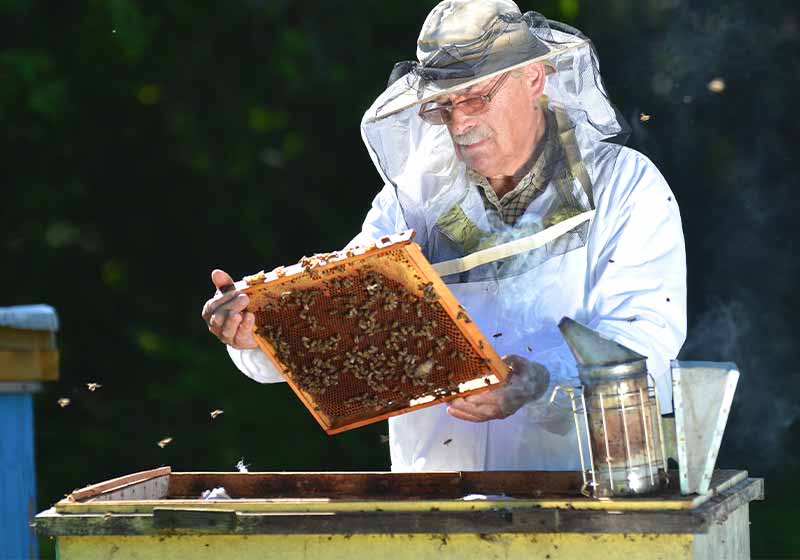
Examine your hives during the fall so you can still make the necessary adjustments. Check if they are free from any diseases and determine if your queen bee is healthy. If you have to requeen your hive or combine two colonies into one, it's best to do it before winter.
2. Place Them Near Sunlight
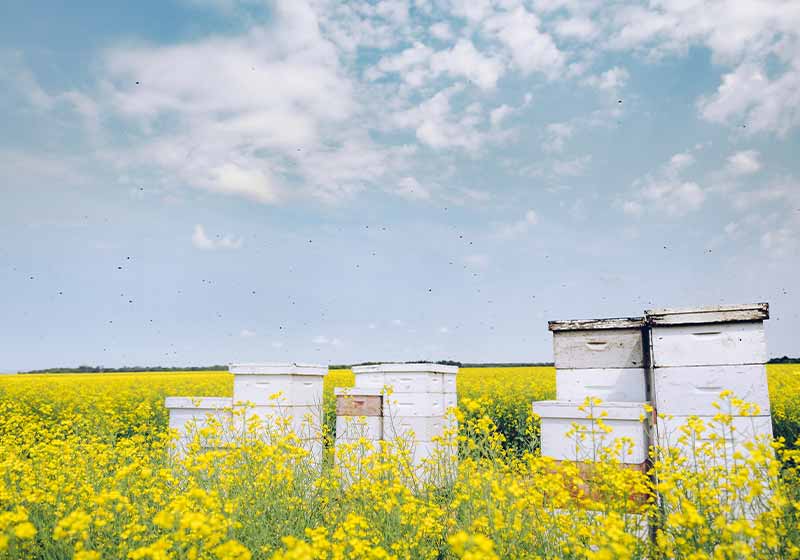
Winter means fewer hours of sunshine, so you'll want to focus on keeping your hives where they'll get the most sunlight. This will help the bees maintain a warm temperature inside.
3. Place a Barrier Around Them
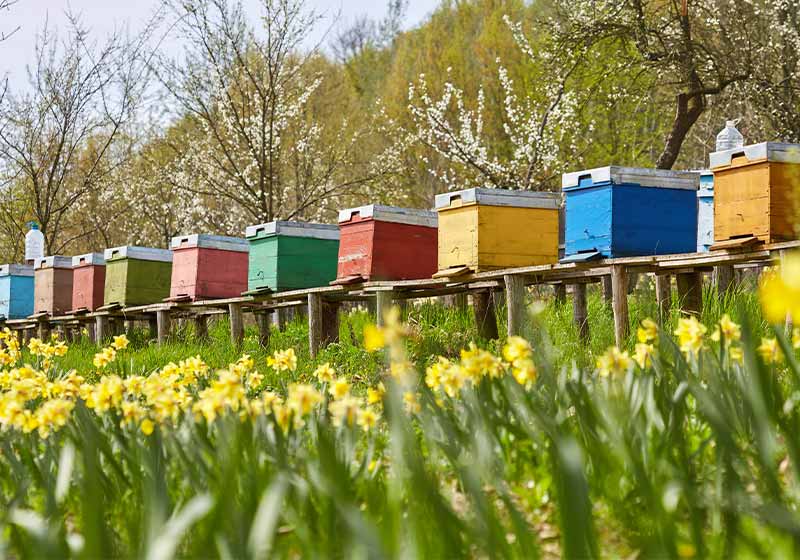
You can lose your beehives during a winter storm. To avoid this, build a fence around them to block the wind.
Alternatively, you can also place the hives near a tree line. This way, they would get enough sunlight, and the trees would create a barrier against the wind at the same time.
4. Leave Ventilation
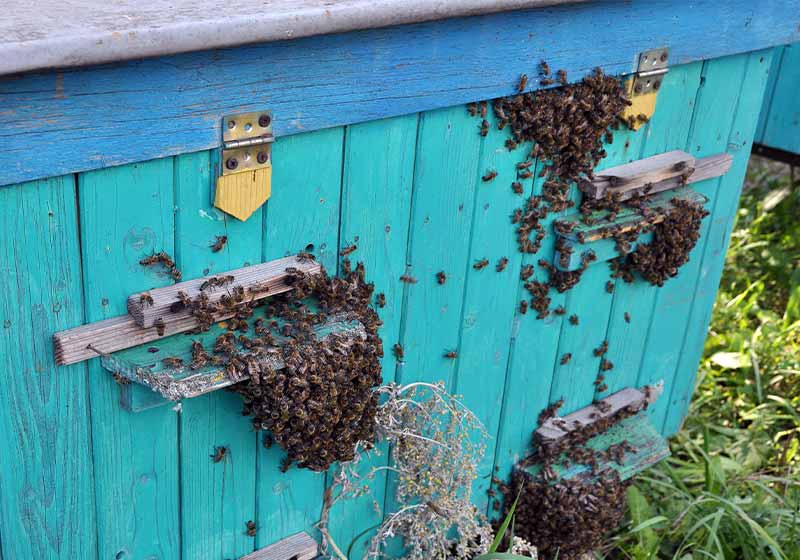
Honey bees flap their wings, shiver, and cluster themselves together to create warmth. As they tighten this cluster, the bees put off moisture. If the air couldn't pass through the hive, this moisture will turn into condensation which can cause the death of your bees.
To prevent this, tip up the roof of the beehive to allow the air to flow properly. Just make sure that the ventilation won't freeze your bees.
RELATED: What's The Buzz On Bees? | Beekeeping Info For Savvy Homesteaders
5. Reduce the Size of Your Beehive
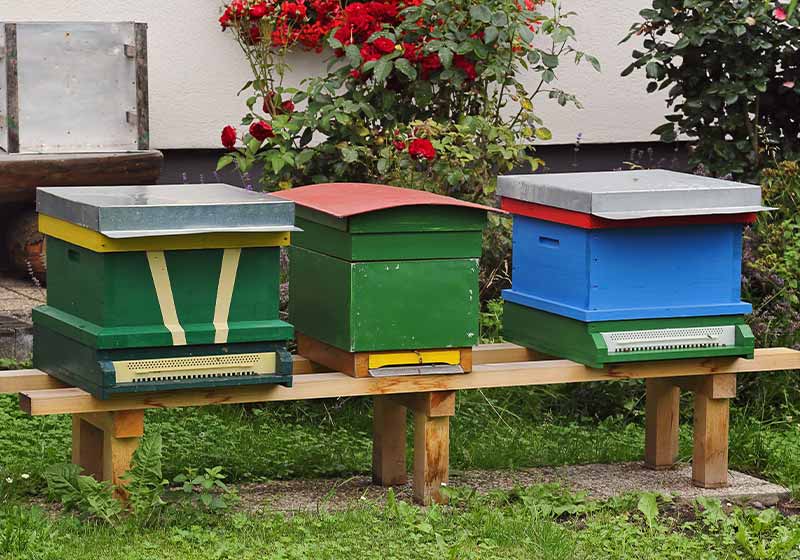
During summer, your hives grow taller depending on the productivity of your bees. However, the population of your bees declines over winter, and since they cluster for warmth, there will be free space in larger hives.
Help your bees conserve their energy in keeping their beehives warm. Decrease the size of your hive to avoid frozen bees and cold hives.
6. Use Hive Covers
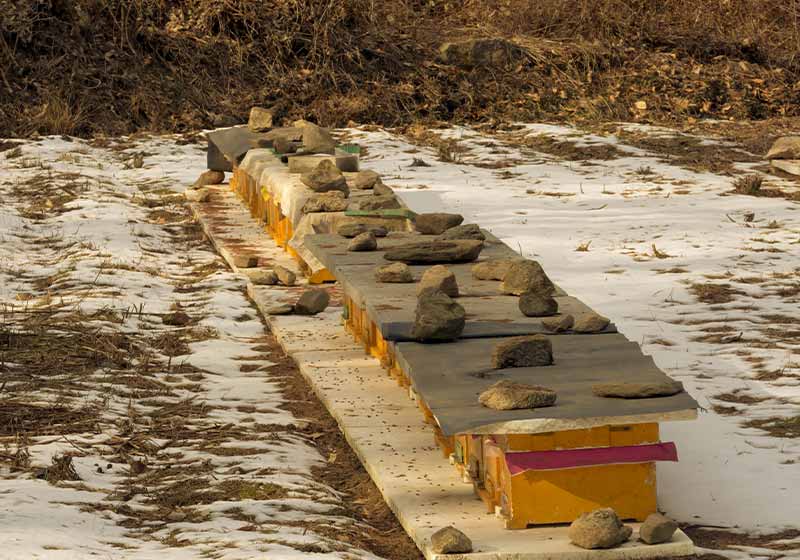
If your beehives are located in a place with extremely cold weather and lots of snow, keep them warmer by using No products found.. You don't want your bees to fly off so make sure to secure those covers properly.
There's no specific date as to when you should start beekeeping in winter, but you can do this around the end of October or November. Just keep a watchful eye on both your hive and the weather to know when to start preparing.
7. Ensure Food Supply
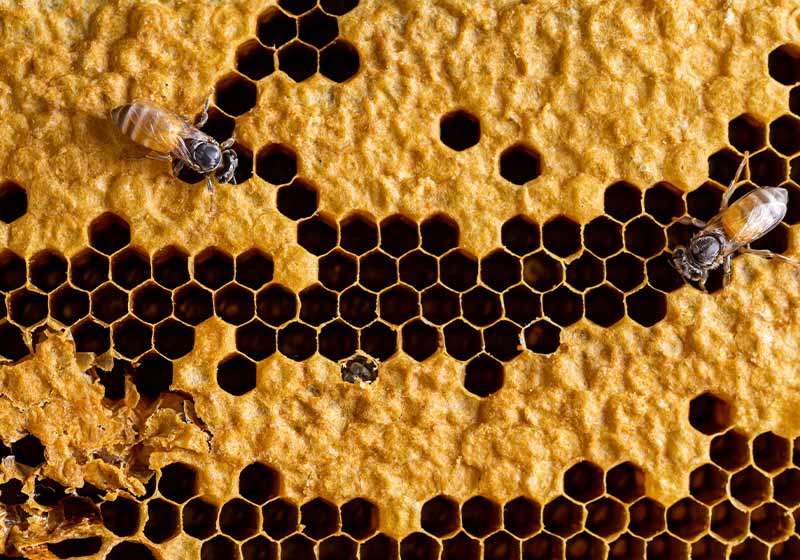
Your bees consume a great deal of energy when they are clustering. They replace this used energy by consuming around 30-80 pounds of stored honey in the beehive.
Bees also don't get out of their hive when it's cold, so it's important to check their food supply. Leave extra frames of honey as reserves for your bees. You can also feed them with either fondant or grease patties.
8. Wrap Your Beehives
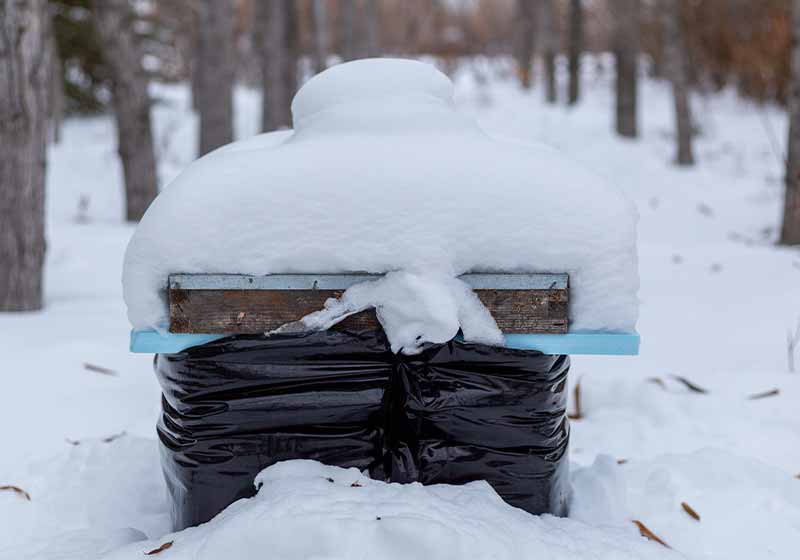
Covering your hives is vital in ensuring that your bees get their needed warmth. Wrap your beehives using tar paper stapled outside. This will also keep the rain and snow from entering the hive.
Make sure that there are enough openings for the air to pass through so your bees can breathe.
9. Clean Your Beekeeping Tools
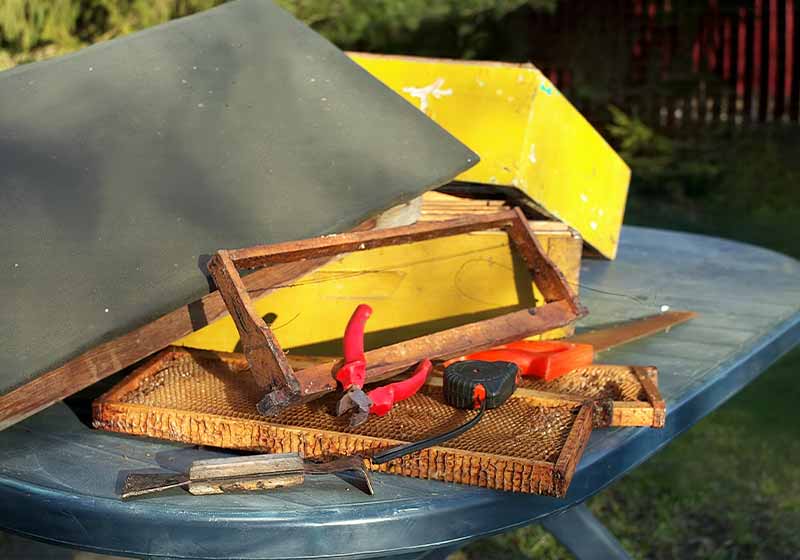
Dedicate time for a clean-up session of your beekeeping tools. Ensure that each equipment is clean and ready for winter.
Take the hive frames out and put them in a safe place for a week. This will help get rid of any bee pests. Additionally, get rid of wax and propolis on your wooden tools using a combination of washing soda and water.
Beekeeping in winter can be stressful for homesteaders. Make sure that you have the essential beekeeping equipment by watching this video by MadeGood Bikes:
Winter is a tough time for bees. Instead of making honey, they are focused on survival. Learn proper beekeeping in winter and keep your bees healthy.
What do you think of these tips for beekeeping in winter? Which one will you try? Let me know in the comments below!
Up Next:
- Beekeeping Starter Kit: Essential Supplies You Need To Get Started
- 7 Best Types Of Honey Bees For Your Bee Farm
- How To Build a Rabbit Hutch For Your Homestead
Fellow homesteaders, do you want to help others learn from your journey by becoming one of our original contributors? Write for us!

Thank you for this I formation. I have not started hives because of my lack of knowledge. I am learning more so maybe I can have my own hives soon.